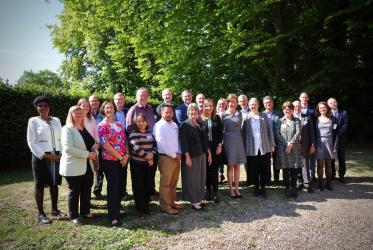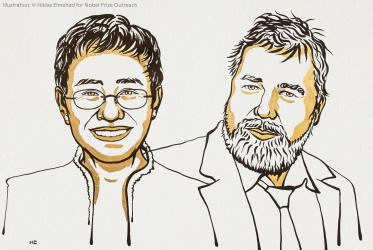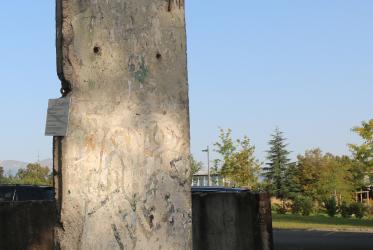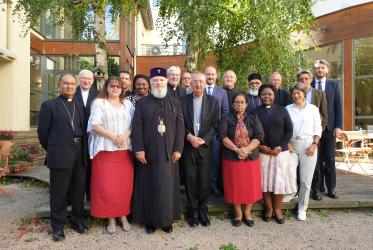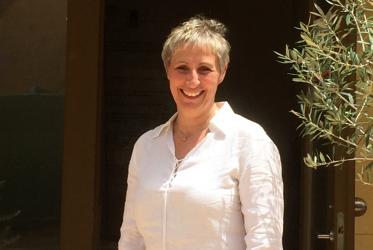Displaying 1 - 20 of 107
08 September 2022
WCC congratulates 2021 Nobel Peace Prize laureates
14 October 2021
WCC welcomes new staff
11 February 2020
Pope Francis expresses “fraternal closeness” with Waldensian Methodist
09 September 2019
Religions for Peace assembly convenes in Lindau
19 August 2019
‘European humanitarian corridor’ proposed
02 May 2019

